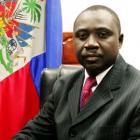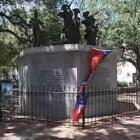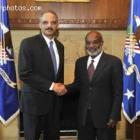ADVERTISEMENT
international interference
U.S. Senators David Perdue, Marco Rubio and Johnny Isakson want sanctions on Haiti
Here is the pictures of three U.S. Senators. It is David Perdue, Marco Rubio and Johnny Isakson and they all want sanctions on Haiti.
As per news dated April 21, 2016, three U.S. Senators David Perdue (R-GA), Johnny Isakson (R-GA), and Marco Rubio (R-FL) have expressed their growing concern with the political situation in Haiti and have urged the U.S Secretary of State John Kerry, in a letter dated April 15, 2016, to use every tool at his disposal to ensure Haitian authority works closely with the Interim President Privert and the new CEP and completes its presidential elections process by the agreed upon deadline by April 24, 2016. The authority must punish those who plan to disrupt the election for their own interest. The election as a whole has cost about $80 million in which the United Stated had invested more than $30 million and a lot of diplomatic effort.
The body of Charlemagne Peralte after his death
Here is a picture of The body of the leader of the Haitian revolution, Charlemagne Péralte. His death at the age of 33, made Charlemagne Péralte a martyr for the Haitian nation.
His death was caused by a betrayal from one of his officers.
Jean-Baptiste Conzé became an informant to US Marines Sergeant Herman H. Hanneken
Charlemagne Péralte was assassinated with a shot in the heart at close range
New cultural magazine on Radio France Internationale, RFI, Koze Kilti
New cultural magazine on RFI, Koze Kilti
On Sunday, March 27, 2016, the Radio France Internationale (RFI) has introduced a new program in Haitian Creole and French which would be broadcast exclusively on its Haitian antennas. The program named "Koze Kilti" (Talk about culture, in Creole) is a 27 minute program under presentation of the Haitian journalist Dangelo Néard which would be broadcasted every Sunday at 1:30 p.m. and rebroadcast at 8:30 p.m. (Haiti time). It is a program produced in partnership with the French Institute in Port-au -Prince and recorded in the Institute's Port-au-Prince studio. The program will include local and international cultural news of the week from areas like literature, film, music and visual arts. Radio France Internationale (RFI) is available via the satellite bouquet Canal Sat Caraïbes. In Haiti, the program will be available on the following FM channels: Port-au-Prince (89.3 FM), Cap Haïtien (100.5 FM), Gonaïves (90.5 FM), Jacmel (96.6 FM) Jeremiah (92.7 FM) and Les Cayes (106.9 FM).
Elie Lescot during a reception in United States
This is the picture of Elie Lescot, a former Haitian President. He is seeing here during a reception in United States.
Elie Lescot benefited from the American occupation of Haiti due to his close political and economic ties to the United States
After his return from France, during the United States occupation of Haiti between 1915 and 1934, and held various positions in the government of Louis Borno and Sténio Vincent.
One important role was when he became Haiti ambassador to the neighboring Dominican Republic. This allowed him to develop an alliance with President Rafael Trujillo
Eustache Antoine Francois Joseph Louis Borno, Haitian President
Here is Eustache Antoine Francois Joseph Louis Borno, Haitian politician who was President of Haiti from 1922 to 1930.
He served during the period United States occupied Haiti.
After a Haitian mob killed President Vilbrun Guillaume Sam in 1915, in the legation of France, where he had taken refug, U.S. troops landed in Haiti. They organized the election where , Philippe Sudré Dartiguenave, became president. Borno was appointed Minister of Foreign Affairs under President Joseph Davilmar Théodore. One major event that Louis Borno was involved in was his refusal to cede financial control of the country to the United States. The United States responded by confiscating the reserves of the National Bank of Haiti.
Canada interference in Haitian affairs
History of Canada interference in Haitian affairs.
On March 1, 2016, Concertation pour Haiti (Consensus for Haiti) asked Canada not to interfere in Haitian affairs. CPH (founded in 1994) is a grouping of civil society and individual members from Quebec that works to promote human rights and fundamental freedoms in Haiti. It reiterates its support for the Haitian population in crisis. In a note, the CPH has questioned on the involvement of the International Community in Haiti and has called for the respect of each country's national sovereignty. It has requested the Canadian government not to interfere in the ongoing electoral process. The Haitian population must be given the opportunity to determine their own affair without any external intervention. We might remember the initiatives taken by Canada, the U.S and France in 2004 which toppled the government of democratically elected President Aristide.
US Ambassador Kenneth Merten declaring Michel Martelly a Haitian citizen
Here is a picture surrendering the proble of citizenship faced by President Michel Martelly. US Ambassador Kenneth Merten declaring Michel Martelly a Haitian citizen.
When in March 2012, the snowball rumor about Michel Martelly's nationality transformed into an avalanche, destroying his credibility to hold the president's office, then-U.S. Ambassador to Haiti Kenneth Merten (August 25, 2009 - July 20, 2012 ) came to his rescue. Merten said Mr. Martelly is not an American citizen and he does not have a U.S. passport. However, the Haitian legislature was not satisfied with that explanation. About one year ago in early 2011, a bogus U.S. passport was surfaced on the Internet that purported to be Michel Martelly's. Marten's assurances could not impress the members of a special commission of the Haitian Senate responsible to investigate politicians who hold dual citizenship. However, Martelly termed this citizenship controversy initiated by Senator Jean-Charles as "conspiracy", organized by people who can't believe Michel Martelly is going to be the country's President.
General Raoul Cédras going into exile
General Raoul Cédras going into exile.
The coup of Haitian military that ousted Jean Aristide from his rightful office in 1991 was led by Army Lieutenant General Raoul Cedras. Between 30 September 1991 and 15 June 1993, the real political authority in Haiti rested with the military junta headed by Raoul Cédras and Michel François. During this period, the American military officers and civilian officials provided lucrative contracts to several wealthy Haitian families who were behind the coup or backed the three-year military regime. The U.S offered Raoul Cedras a million dollar-plus "golden parachute benefit" plus good compensation for his three houses, to resign and go into exile. However, Raoul delayed his departure for a much better deal. Cédras was a member of the US-trained Leopard Corps; he was chosen by the US and France to be in charge of security for the Haitian general election, 1990-1991 and he subsequently became Commander-in-Chief of the army of Jean-Bertrand Aristide. He was also one important source for the CIA, providing reports critical of President Aristide. With United States intervention, Gen Raoul Cedras agreed to resign on 10 October 1994, paving the way for Aristide's return. To avoid arrest, Cedras fled to Panama on October 13, 1994.
A Caco during the 1915 US Occupation of Haiti
You are looking at a Caco or a Haitian nationalist fighting against the 1915 US Occupation of Haiti.
Great Depression Ends U.S. Occupation in Haiti
When American forces began occupying Haiti in 1915, the island was in political and economic distress. America feared a German takeover of susceptible Haiti, and took control of the country's infrastructure, even writing its Constitution.
Haitians soon grew to hate the Occupation. They felt used, betrayed, and deprived of their autonomy.
Lonely when America's Great Depression occurred did they pull out in 1934 under pressure from American citizens, who disapproved of the U.S. spending too much money in Haiti.

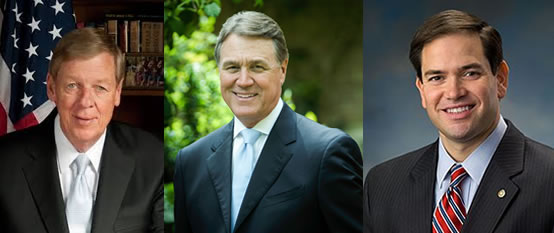
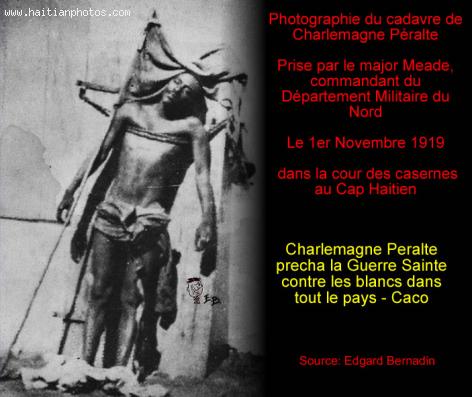
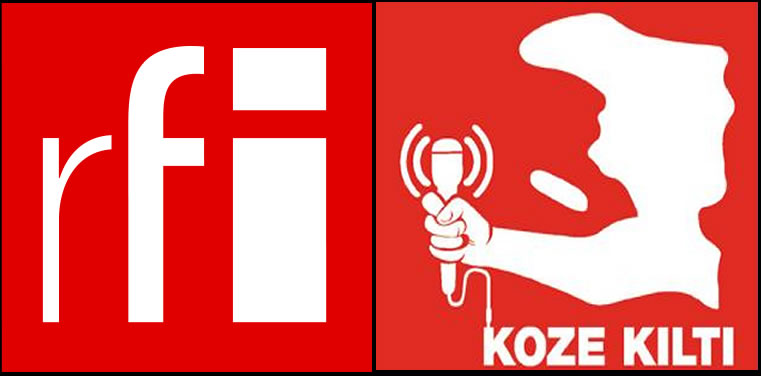
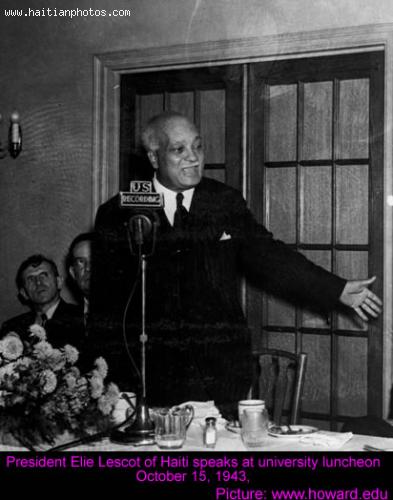
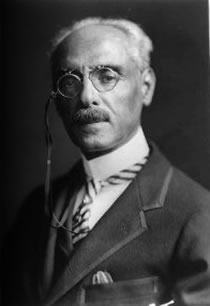
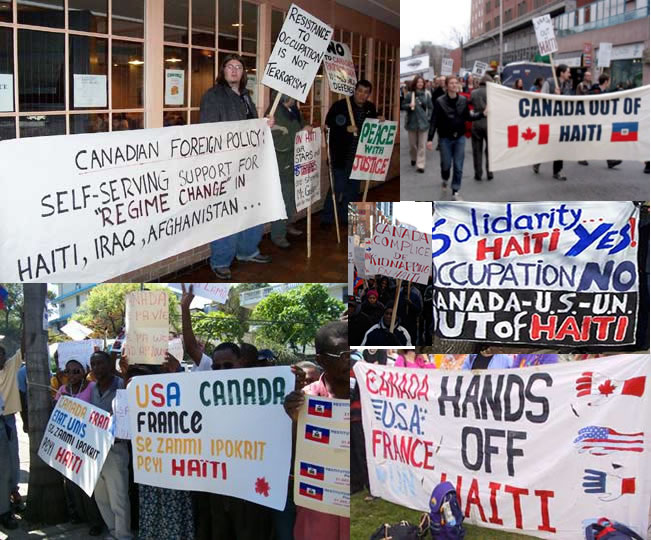
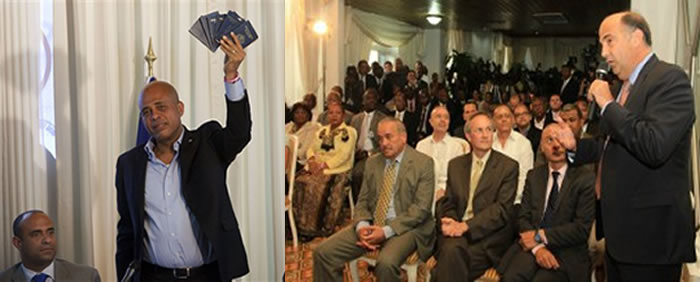


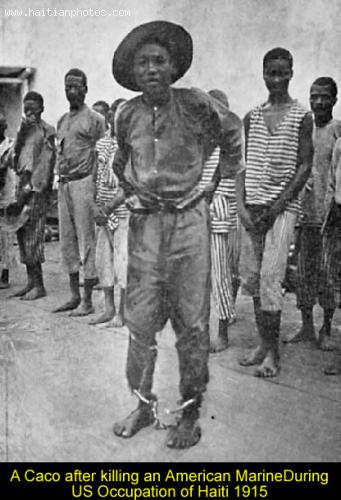
 François Nicolas Duvalier Potential Candidate for President of...
François Nicolas Duvalier Potential Candidate for President of...  Bouki Ak Ti Malice, Story Of Intelligence Vs Ignorance For...
Bouki Ak Ti Malice, Story Of Intelligence Vs Ignorance For...  Children of Haitian descent handcuffed, deported from the Bahamas
Children of Haitian descent handcuffed, deported from the Bahamas 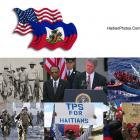 Haitians, the second largest black immigrant group in the US
Haitians, the second largest black immigrant group in the US  Jean Henry Céant deposited documents in Parliament for...
Jean Henry Céant deposited documents in Parliament for...  Philippe Vorbe entered world football Hall of Fame, CONCACAF
Philippe Vorbe entered world football Hall of Fame, CONCACAF  Dr. Michaëlle Amédée Gédéon is dead
Dr. Michaëlle Amédée Gédéon is dead  Commissioner Frantz Pierre indicted for accepting bribes
Commissioner Frantz Pierre indicted for accepting bribes 